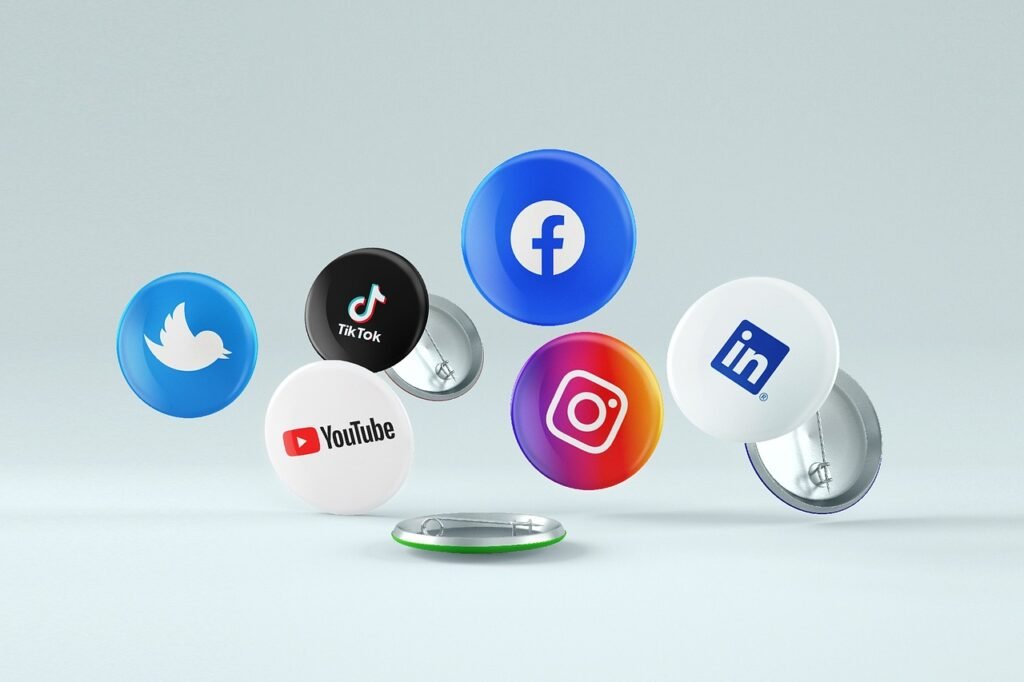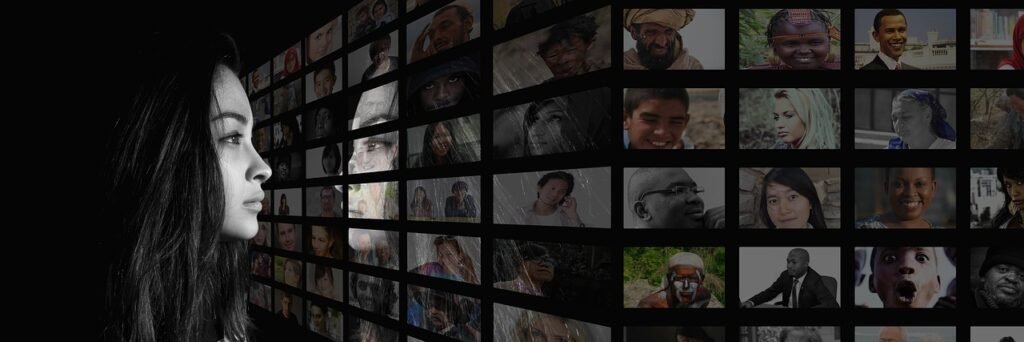
The Impact of Social Media on the 2024 Presidential Elections
Delve into the transformative influence of social media on the 2024 Presidential Elections. Discover its role in campaign strategies, voter engagement, and misinformation dissemination.
Introduction
In recent years, the impact of social media on politics has been significant, and as we approach the 2024 presidential elections, its influence is poised to play a pivotal role. Further we delve into the evolving role of social media in the political landscape, from campaign strategies to the challenges of misinformation, and its effect on voter engagement. In this article, we’ll explore the multifaceted role of social media in shaping the upcoming elections and the broader implications for our democratic process. Some elements of thought mentioned below in short pointers .
The Evolving Role of Social Media in Politics
Social media platforms have become integral in political communication and campaigning. In the lead-up to the 2024 presidential elections, understanding their role is crucial.
Click here to read “Why it is important to have media coverage in Politics ?”.
Social Media’s Evolution
The transformation of social media from casual communication to a political battleground has to be well understood. Social media these days is not just a medium for staying connected but is a very big tool which can change the course of the election.

The advent of social media has ushered in a transformative era in the realm of presidential elections, reshaping the way candidates communicate, connect with voters, and influence public opinion. The impact of social media on these high-stakes political contests is profound and multifaceted.
Information Dissemination
Social media platforms serve as virtual town squares, enabling candidates to reach millions of voters instantaneously. The viral nature of content on platforms like Twitter, Facebook, and Instagram allows campaigns to rapidly disseminate messages, respond to events in real-time, and capture the attention of a broad and diverse audience.
Although social media is the fastest medium of communication in the digital age , the underlying points to watch out for are rapid spread of fake news, misinformation, and propaganda through social networks. Sharing and spreading information without checking its credibility and source and making opinions/ judgement on that behalf.

Social Media in Political Campaigns
How do political campaigns harness the power of social media to further their agendas?
Click here to read about the “Impact of Technology in politics”.
Real-Time Issue Advocacy
Social media enables candidates to address pressing issues as they unfold. Whether responding to a crisis or championing a cause, candidates can leverage these platforms to showcase their leadership in real-time. This responsiveness contributes to the perception of candidates as dynamic and engaged with the concerns of the electorate.
Micro-Targeting and Data Analytics/ Targeted Advertising
The effectiveness of micro-targeting through social media advertising cannot be ignored. Campaigns are increasingly using micro-targeting and data analytics to tailor their messages to specific voter segments, amplifying their reach and impact.
Social media’s treasure trove of user data empowers campaigns to execute highly targeted and personalized advertising. From demographic information to user preferences, campaigns can tailor messages to specific voter segments. This precision targeting enhances the efficiency of advertising efforts, ensuring that messages resonate with the right audiences.
Amplification of Political Narratives
Social media serves as an amplifier for political narratives. Campaigns can strategically frame issues, highlight achievements, and respond to controversies with the goal of shaping public perception. The ability to control the narrative in real-time is a powerful tool, allowing candidates to influence the discourse surrounding their candidacy.
Influencer Marketing
Influencers are playing a more prominent role in politics, on the positive side they are helping candidates connect with a broader and often younger audience , but they might influence other people’s mindsets and opinions too.
Voter Engagement and Mobilization
Social media provides a platform for candidates to engage with voters directly, share their policies, and mobilize supporters. Candidates now have a direct line of communication with voters, bypassing traditional intermediaries. Platforms like Twitter facilitate unfiltered interactions, allowing candidates to share their perspectives, respond to queries, and showcase their personalities. This direct engagement fosters a sense of accessibility and authenticity, bridging the gap between candidates and the electorate.

The Influence of Young Voters
The younger demographic, often elusive through traditional media channels, is highly active on social media. Platforms like TikTok and Snapchat have become influential spaces where candidates can connect with first-time voters. Young voters, in particular, are highly active on social media, making it a critical tool for reaching this demographic. Crafting engaging content tailored to the preferences of younger audiences is crucial for winning their attention and, ultimately, their votes.
Impact on Voter Turnout
Social media plays a role in mobilizing voters and encouraging civic participation. Campaigns can use these platforms to disseminate information about registration, polling locations, and key election dates. Additionally, social media-driven movements can inspire a sense of community and shared purpose, motivating individuals to exercise their right to vote.
The Challenge of Misinformation
Deep fakes and Disinformation

While social media provides a platform for authentic communication, it also poses challenges related to misinformation and disinformation. False narratives, deep fakes, and the rapid spread of rumours can significantly impact public perception. The spread of deep fakes and disinformation on social media poses as the dark side of social media’s impact on elections. Navigating these digital pitfalls becomes a critical aspect of preserving the integrity of the electoral process. Candidates and fact-checkers must combat false narratives, people should stay vigilant and not blindly trust everything they see on social media.
Efforts to fact-check and debunk false information are on the rise, but the battle against misinformation continues.
Regulation and Data Privacy Concerns
As social media’s role in politics grows, discussions about regulation and privacy concerns intensify. The growing concerns about data privacy and its impact on political campaigns cannot be undermined , one cannot ignore the depths of big data based organisations as they are profiling and collecting more and more information about individuals.
The need for regulatory measures to protect user data and election integrity is increasing by each passing day.
Influence of Online Communities
The role of social media communities in shaping political opinions cannot be undermined. They have the power to influence the perceptions of people and can change the course of the elections.
Monitoring Election Interference
Efforts should be made to monitor and prevent foreign interference in elections. Content visible on social media might be promoted by foreign powers or Third Parties in their interests and this may influence the results thereof.
The Pros and Cons of Social Media in Politics
Pros: Accessibility and Engagement
Social media platforms democratize political discourse, allowing candidates to reach a broad audience, express themselves and their ideas on a bigger platform and in a detailed manner. They help in engaging a wider audience encompassing all segments of the society and reaching out to the masses.

Cons: Filter Bubbles and Polarization
On the flip side, filter bubbles can limit exposure to diverse viewpoints and contribute to political polarization. Misinformation and false narratives can portray things in a different light.
The Role of Social Media in Shaping Political Discourse
Social media not only amplifies political discourse but also shapes it. The public’s reactions, opinions, and discourse are often heavily influenced by what they see and share on these platforms.
The Importance of Digital Literacy
Digital literacy is essential in an age where misinformation can easily spread. Understanding how to critically evaluate information is crucial for voters. They should take informed decisions and correct judgements on the events and opportunities in hand.
Conclusion
The 2024 presidential elections will undoubtedly be influenced by the growing role of social media. The impact of social media on presidential elections is pervasive, influencing the dynamics of communication, engagement, and information dissemination.
Its impact on campaigns, voter engagement, and the information landscape presents both opportunities and challenges for candidates, voters, and the democratic process.
The 2024 Presidential Elections will be a significant turning point in the ever-evolving relationship between social media and politics. As these platforms continue to evolve, political campaigns must navigate the opportunities and challenges they present to effectively connect with voters in the ever-changing landscape of digital democracy.
Understanding the impact of social media is crucial for voters, candidates, and the democratic process as a whole. As we journey through this election, let’s remain vigilant, critical, and engaged in the digital realm where democracy is now shaped.
FAQs
- How have social media platforms changed political campaigning? Social media platforms have allowed for more personalized and targeted campaigning through micro-targeting and influencer marketing.
- What are deep fakes, and how do they affect politics? Deep fakes are manipulated videos or audio recordings that can spread false information. They can mislead the public and impact political discourse.
- What is the role of social media in engaging young voters? Social media is a powerful tool for reaching and mobilizing young voters, who are highly active on these platforms.
- Are there efforts to combat misinformation on social media? Yes, there are fact-checking efforts and initiatives to combat misinformation, but it remains a significant challenge.
- How can voters navigate the information landscape on social media? Voters should develop digital literacy skills to critically evaluate the information they encounter and seek out diverse perspectives to avoid filter bubbles.
